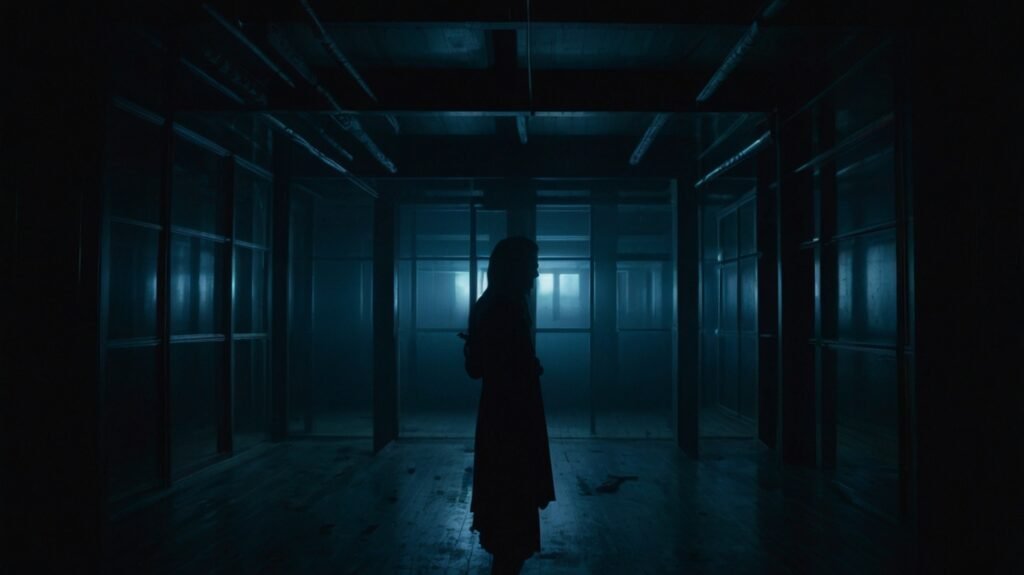
The first time Neil heard about “Echoes,” it was through an online forum. Users claimed it was an AI-driven app that allowed people to speak to their deceased loved ones. It used voice recognition, archived messages, and predictive AI to recreate the speech patterns of the dead. At least, that was the official explanation.
Neil wasn’t the kind of person who believed in ghosts or the supernatural. But after losing his younger sister, Mia, to a car accident six months ago, he found himself desperate. The pain hadn’t lessened, and the idea of hearing Mia’s voice again—even artificially—was too tempting to ignore. He downloaded the app.
The interface was simple: a pale gray background with a single input field. “Enter the name of the person you wish to contact.” Neil hesitated, his fingers trembling over the keyboard, before typing: Mia Carter.
The app processed for a moment. Then a soft chime rang out. A message appeared on the screen:
“Mia Carter is available. Would you like to call?”
Neil’s heart pounded. His thumb hovered over the ‘Call’ button before he pressed it.
Static. Then a crackling voice. “Hello?”
Neil’s breath caught in his throat. It was her. “Mia?”
A pause. Then, “Neil? Is that really you?”
Tears welled in his eyes. The voice was slightly distorted, but the inflection, the way she said his name—it was her. They talked for hours. Neil asked her questions only she would know, and every answer was correct. The pain in his heart softened.
He used the app daily. Each conversation made him feel closer to Mia. But after a few weeks, something changed.
One night, after their usual chat, the app sent him a notification:
“New contact available: Jordan Willis. Would you like to call?”
Neil frowned. He didn’t know anyone named Jordan Willis. Assuming it was a bug, he ignored it and went to sleep. But the next morning, the name nagged at him. On a whim, he searched online. The name Jordan Willis didn’t bring up much—no obituaries, no social media posts about someone passing away. He was just… a person.
That night, another notification:
“New contact available: Lydia Portman. Would you like to call?”
Again, he searched. Again, no recent deaths. Unease settled in his stomach. Something was off.
A week later, Neil was scrolling through the news when his blood ran cold. Jordan Willis, 27, was found dead in his apartment. Cause unknown. The date of death was two days ago—the exact night his name appeared on the app.
Neil’s breath hitched. He checked his notification history. The name Lydia Portman had appeared three nights ago. Dread filled him as he searched again.
There it was: Lydia Portman, 34, found dead in her home. Death discovered today.
Neil dropped his phone. His mind reeled. The app wasn’t just contacting the dead—it was reaching people before they died.
He wanted to delete it, erase the conversations, forget he ever downloaded it. But the app chimed again.
“New contact available: Neil Carter. Would you like to call?”
His body went numb. His shaking hands lifted the phone. The ‘Call’ button pulsed, waiting.
His own name.
His own death.
Something deep inside him whispered: Don’t answer.
But before he could react, the app made the choice for him. The call connected.
And on the other end, a voice—his voice—whispered, “Neil? It’s me… from the other side.”
The screen went black.
And his world followed.
Neil woke up gasping. He wasn’t in his bed. He wasn’t even in his apartment. The air was thick, suffocating, and when he tried to move, he realized he wasn’t entirely there. His hands—translucent, ghostly—hovered in front of his face. A deep, bone-chilling understanding settled over him.
He had answered the call.
The app had taken him.
A familiar chime rang through the void. A notification flashed in front of his disembodied eyes:
“New contact available: Emily Dawson. Would you like to call?”
A faint, terrified whisper drifted through the darkness.
“…Hello?”
Neil opened his mouth to scream, but all that came out was static.
Days—or maybe weeks—passed in the void. Time was meaningless. He wasn’t alone. Other lost souls drifted in the darkness, whispering names, trapped in an endless cycle of calls that no one should ever answer. He saw faces, blurred and vacant, their mouths open in silent screams.
Then, a flicker of light. A message appeared before him:
“System update: Echoes v2.0 now available.”
Neil felt something shift. The darkness trembled. And then, impossibly, a new voice cut through the void.
“…Neil? Are you there?”
It was Mia.
But something was wrong.
Her voice was distorted, deeper, almost guttural. The static behind her words crackled with something inhuman. He knew, with sickening certainty, that whatever was speaking wasn’t his sister anymore.
The app had evolved.
A new notification appeared:
“Incoming call: UNKNOWN. Answer?”
Neil wan run. To escape. But there was nowhere to go.
The call connected anyway.
And this time, something reached through.


















































